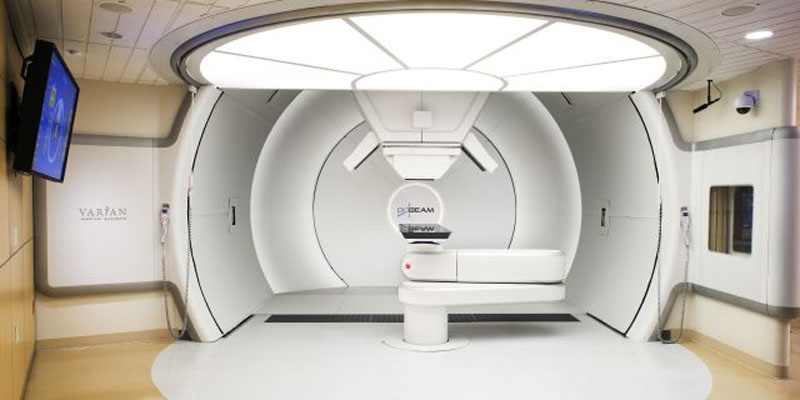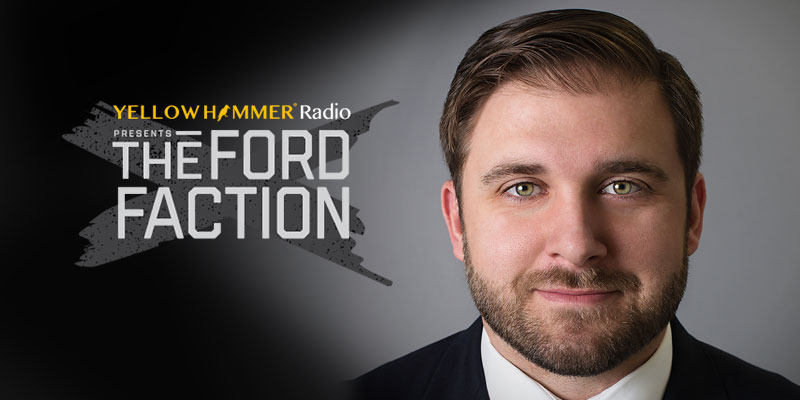
Imagine state-of-the-art cancer treatment that is so exact, it can target tumor-killing radiation directly to any spot in the body, with a low chance of harming tissue in front of, around or behind the tumor.
Starting in 2020, UAB Hospital will begin offering this innovative treatment – proton therapy – for patients with localized cancer. On Jan. 30, UAB broke ground for the state’s first Proton Therapy Center at the corner of 20th Street South and Fifth Avenue.
A technically advanced form of radiation, proton therapy uses highly precise proton beams instead of traditional X-rays to attack tumors. It painlessly delivers radiation through the skin, directly to a targeted place in the body, such as a tumor or organ. There, the proton beams deposit a precise dose of radiation, avoiding damage to healthy surrounding tissue better than conventional X-ray radiation. Currently, there are approximately 20 proton therapy centers in the U.S.
Proton International at UAB will be in a three-story building that will house the proton therapy system, manufactured by Varian, a longtime partner with UAB in the delivery of radiation therapy. UAB will lease the property to Proton International, which will build and manage the facility. A leader in the field of proton therapy, Proton International also has two centers underway in Europe.
Dr. John Fiveash, a UAB oncologist since 1998, looks forward to offering the treatment to his patients. When Fiveash began practicing medicine at UAB, he mostly treated prostate and brain cancers. Now, about 80 percent of his patients have brain tumors.
“Proton treatment is the next step in improving nonsurgical cancer treatment,” he said.
Providing targeted cancer treatment
For some patients, proton therapy will provide more superior treatment, he believes.
“We’ve spent the last 15 years looking at how treatment has evolved,” said Fiveash, one of 17 radiation oncologists. “This therapy has become more cost-effective, and we believe it will become a tool of choice for physicians.
“Compared to standard treatment, proton therapy has the ability to target a tumor or cancerous growth, sometimes giving a higher dose of cancer-killing therapy with the same level of side effects,” said Fiveash, who earned his M.D. at the Medical College of Georgia in 1993. “In theory, this treatment is for patients who have localized cancer.”
He said that oncologists will select patients who will best benefit, such as those whose cancer affects an organ and a few nearby lymph nodes. Not every patient will be eligible. It’s possible for oncologists to combine proton therapy with chemotherapy, which makes radiation more effective for many types of tumors. Fiveash said that proton therapy may prove less toxic.
“Regular radiation can have many side effects,” Fiveash said. “For many tumor types, proton therapy can lead to a better quality of life.”
Proton therapy may benefit children who have brain tumors. Children’s of Alabama in Birmingham sees about 60 to 80 patients a year who require treatment, but the hospital doesn’t offer radiation. Many Children’s patients are directed to Fiveash.
“Regular radiation can cause intellectual and developmental disabilities later to the patient,” he said. “Head and neck or throat cancers may also benefit. For those patients, the mouth can get very sore, preventing the patient from eating. This may allow us not to irradiate the mouth as much.”
UAB improving healthcare for Alabama residents, region
“Establishing the first proton therapy facility in Alabama is one more way that UAB Medicine is improving health care for residents of the state and region,” said UAB Health System CEO Will Ferniany.
“This advanced cancer-fighting radiation technology, coupled with the skill, experience and resources of Proton International, the UAB Department of Radiation Oncology, School of Medicine and the Comprehensive Cancer Center, will be a life-changing resource for cancer patients throughout our region,” Ferniany said.
Chris Chandler, CEO of Proton International, said that proton therapy has proved itself as a front-line treatment for multiple forms of cancer.
“Experts conservatively estimate that about 250,000 cancer patients in the United States alone could benefit from proton therapy,” Chandler said. “We are excited to partner with UAB and the Department of Radiation Oncology to put this outstanding tool into the hands of the best oncologists in Alabama.”
(By Donna Cope/courtesy of Alabama News Center)












